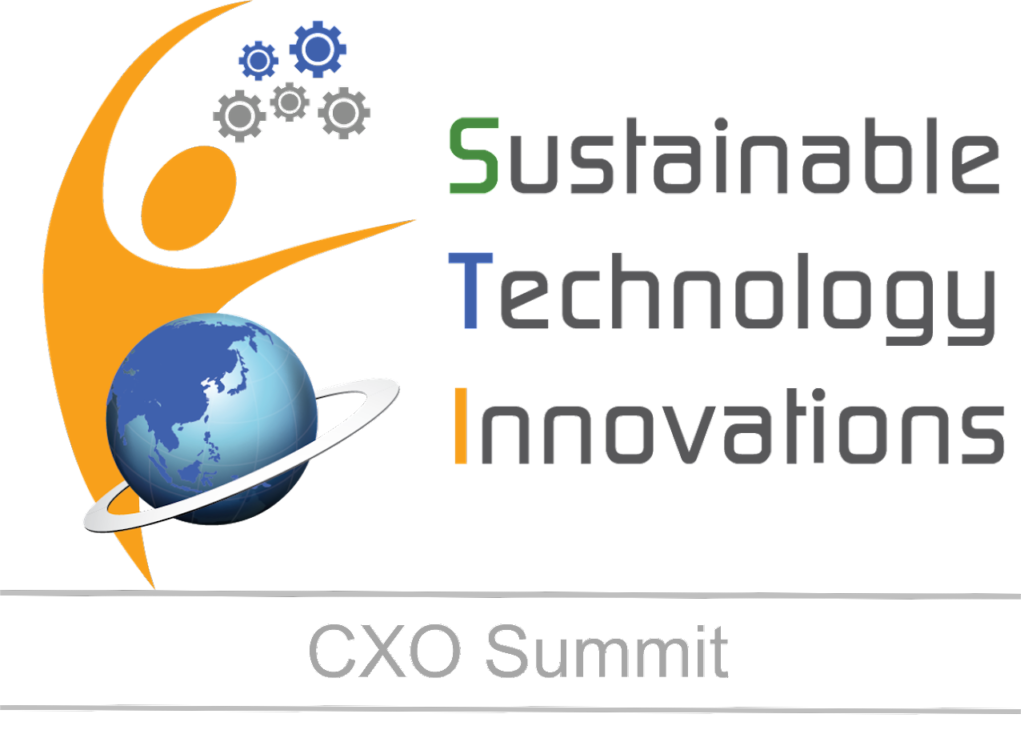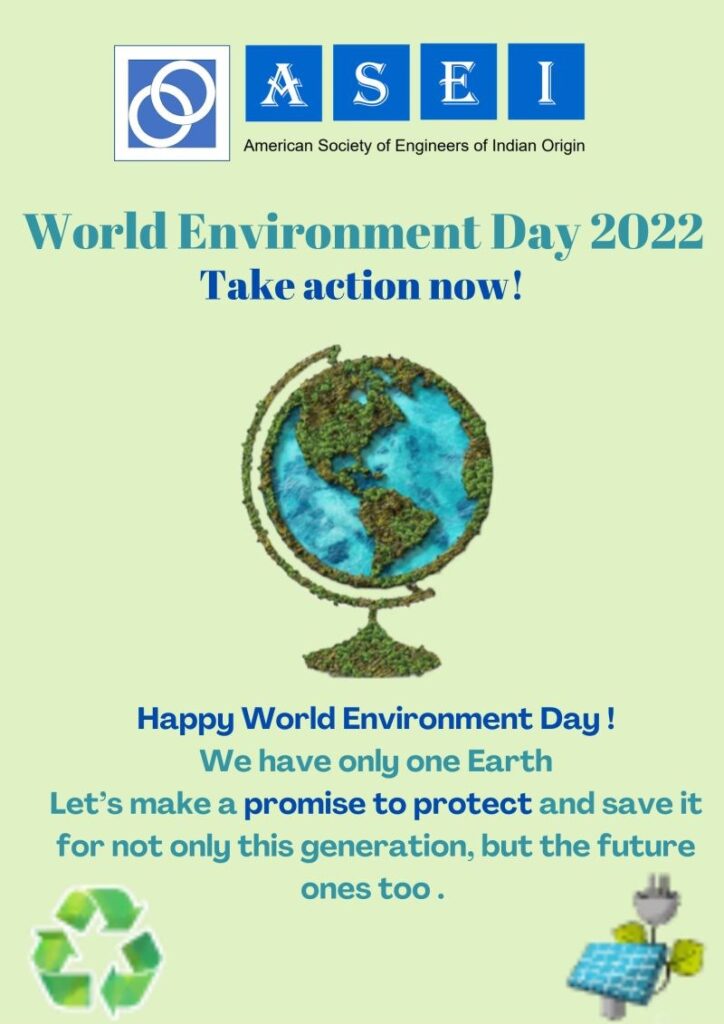In the universe are billions of galaxies,
In our galaxy are billions of planets,
But there is #OnlyOneEarth.
Let’s take care of it.
Led by the United Nations Environment Program (UNEP) and held annually on 5 June since 1973, World Environment Day is the largest global platform for environmental public outreach and is celebrated by millions of people across the world.
ASEI Celebrated #worldenvironmentday2022 with a recommitment to #sustainable #technology #innovations . Many of you may recall our earth day events, sustainability and energy talks in Michigan and So cal as well as STI2022 – the theme for our 34th National Convention that was hosted by Silicon Valley chapter on Jan 15/16, 2022 .


Achieving Sustainability Through Technology and Innovation
Syna Sharma is a San Jose, CA based rising high school junior spending her summer time productively by interning and getting involved with ASEI activities.

